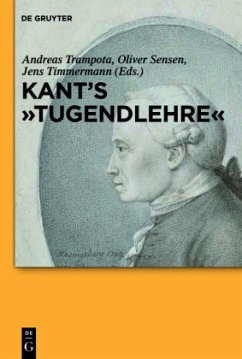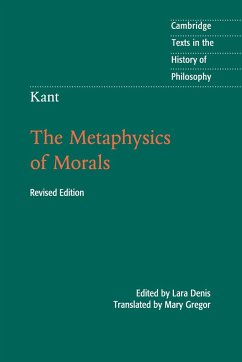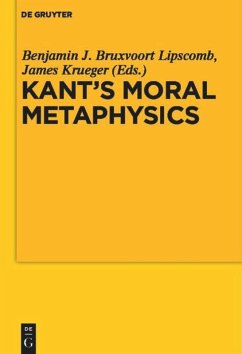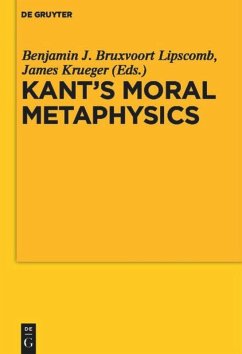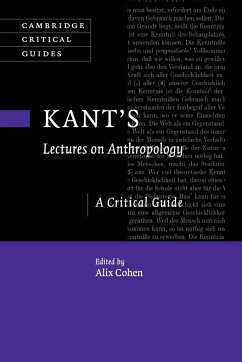
An Introduction to Kant's Moral Philosophy
Versandkostenfrei!
Versandfertig in 1-2 Wochen
28,99 €
inkl. MwSt.
Weitere Ausgaben:

PAYBACK Punkte
14 °P sammeln!
Immanuel Kant's moral philosophy is one of the most distinctive achievements of the European Enlightenment. At its heart lies what Kant called the 'strange thing': the free, rational, human will. This introduction explores the basis of Kant's anti-naturalist, secular, humanist vision of the human good. Moving from a sketch of the Kantian will, with all its component parts and attributes, to Kant's canonical arguments for his categorical imperative, this introduction shows why Kant thought his moral law the best summary expression of both his own philosophical work on morality and his readers' ...
Immanuel Kant's moral philosophy is one of the most distinctive achievements of the European Enlightenment. At its heart lies what Kant called the 'strange thing': the free, rational, human will. This introduction explores the basis of Kant's anti-naturalist, secular, humanist vision of the human good. Moving from a sketch of the Kantian will, with all its component parts and attributes, to Kant's canonical arguments for his categorical imperative, this introduction shows why Kant thought his moral law the best summary expression of both his own philosophical work on morality and his readers' deepest shared convictions about the good. Kant's central tenets, key arguments, and core values are presented in an accessible and engaging way, making this book ideal for anyone eager to explore the fundamentals of Kant's moral philosophy. This introduction explores the basis of Kant's anti-naturalist, secular, humanist vision of human flourishing. Kant's central tenets, key arguments, andcore values are presented in an accessible and engaging way, making this book suitable for advanced undergraduates, graduate students, and educated non-specialists.





